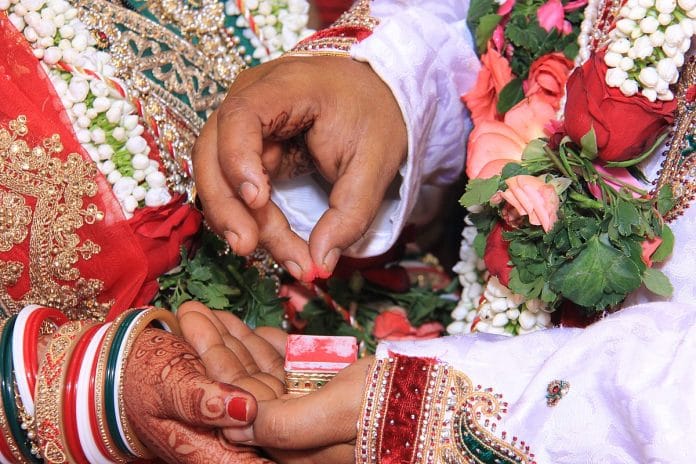New Delhi: While allowing a man to divorce his wife, the Gauhati High Court held that a Hindu woman’s refusal to wear sakha (bangles made of conch shells) or sindoor (vermilion) after her wedding reflects her unwillingness to accept her marriage.
A bench consisting of Chief Justice Ajai Lamba and Justice Soumitra Saikia on 19 June allowed a man’s appeal against a family court order that didn’t grant him permission to divorce his wife. In his plea for separation, the man had said he felt harassed because his wife refused to follow customary rituals of a Hindu wedding and preferred to project herself as an unmarried woman.
“Under the custom of Hindu Marriage, a lady who has entered into marriage according to Hindu rituals and customs, and which has not been denied by the respondent in her evidence, her refusal to wear ‘sakha and sindoor’ will project her to be unmarried,” the bench held.
It signified her refusal to accept the marriage with the appellant and “the same may be construed as harassment inflicted by the wife upon the man and his family members,” the court held. “Such categorical stand of the respondent (wife) points to the clear intention of the respondent that she is unwilling to continue her conjugal life with the appellant,” said the court, pointing to the wife’s statement before the trial court where she accepted not wearing sindoor or sakha.
Also read: Harassing wife for her ‘black complexion’ amounts to cruelty under Section 498A: Calcutta HC
Wife wanted to live away from in-laws
The couple’s marriage was solemnised in February 2012, but within a month of the marriage, the wife demanded a separate accommodation, as she did not wish to live in a joint family, stated the husband. Her insistence on having a contract with the husband to live separately from his mother was also a reason for the court to allow the divorce petition. Although the wife denied signing a contract with her husband before the Gauhati High Court, she had admitted to this fact during her examination in the family court.
The respondent’s demand to live separately led to frequent fights between the two and the she blamed her husband for her failure to conceive and have a child, the man claimed. She later left her matrimonial house in 2013 and filed a dowry-harassment case against him and his family. Another case for cheating was registered against the husband, after the woman complained he breached an agreement between the two to rent a separate accommodation.
“Under such circumstances, unable to bear the agony and the stress inflicted by the respondent wife, the appellant husband filed divorce before the Court of District Judge, Dibrugarh,” the bench noted in its order.
Also read: Unbecoming of Indian women to sleep after rape — HC notes while giving anticipatory bail
Law mandates children to look after parents
The high court took note of the Maintenance and Welfare of Parents and Senior Citizens Act, 2007 to say that children are required to “maintain parents and senior citizens.”
The term welfare means providing for food, healthcare, recreation centres and other necessary amenities for senior citizens.
The agreement that the respondent made the appellant execute was an act of “cruelty” and non-adherence to the provisions of the law, stated the High Court, adding that the respondent prevented the appellant from performing his statutory duties towards her aged mother. Such non-adherence to the 2007 Act can lead to imprisonment or a fine.
Also read: Why are teachers called ‘mistresses’, should be more dignified, says Punjab & Haryana HC







There are various judgements given by various courts who have stated that putting sindoor cannot be considered as a proof for marriage. It is mere a custom that is followed by most of the Indian Women. There is no such provision mentioned under the Hindu Marriage Act which talks about the provision of Sindoor under the Hindu Marriage Act and hence the courts refuse to consider divorce cases where not putting sindoor is the point of contention.
Read full atricle here: https://www.prolawctor.com/essentiality-of-sindoor-in-the-hindu-marriages-in-the-light-of-recent-guwahati-high-court-judgement/